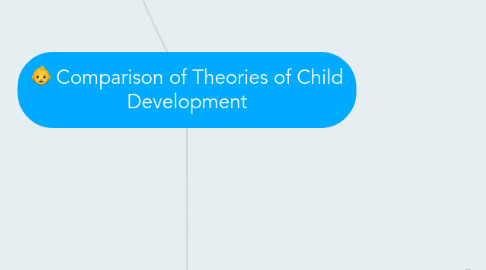
1. Sigmund Freud
1.1. Psychosexual Theory
1.1.1. Oral Stage (Birth-1)
1.1.1.1. Exploration happens via the mouth
1.1.2. Anal Stage (1-3)
1.1.2.1. Gaining control over bladder movements, success leads to a sense of cometency
1.1.3. Phallic Stage (3-6)
1.1.3.1. Children identify strongly with the parent of the same gender
1.1.4. Latency Stage (7-11)
1.1.4.1. Education, friends, and hobbies become the focus. This promotes the growth of social skills and self-confidence
1.1.5. Genital Stage (Adolescence)
1.1.5.1. Children must learn to balance every aspect of their lives, they rely on everything they have learned previously to do so
2. Erik Erikson
2.1. Psychosocial Theory
2.1.1. Trust vs. Mistrust (Birth-1)
2.1.1.1. Relationships with parents and caregivers determine a child's ability to bond and make connections socially
2.1.2. Autonomy vs. Shame and Doubt (1-3)
2.1.2.1. Independence in activities such as eating, toilet training, and talking give children a feeling of accomplishment
2.1.3. Initiative vs. Guilt (3-6)
2.1.3.1. Children have more control, success leads to a sense of purpose, failure leads to feelings of guilt
2.1.4. Industry vs. Inferiority (7-11)
2.1.4.1. Children are focused on building a new skill set, success or failure will result in pride or feeling incompetent
2.1.5. Identity vs. Role Confusion (Adolescence)
2.1.5.1. Children explore who they are, those who have support and encouragement generally flourish and gain a better sense of self
2.1.6. Intimacy vs. Isolation (Young Adult)
2.1.6.1. Young adults seek out love and companionship
2.1.7. Generativity vs Stagnation (Middle Age Adults)
2.1.7.1. Middle age adults strive to help others and be good members of society
2.1.8. Integrity vs. Despair (Older Adults)
2.1.8.1. With the end of life drawing near, older adults look back, either feeling fulfilled or feeling a sense of despair
